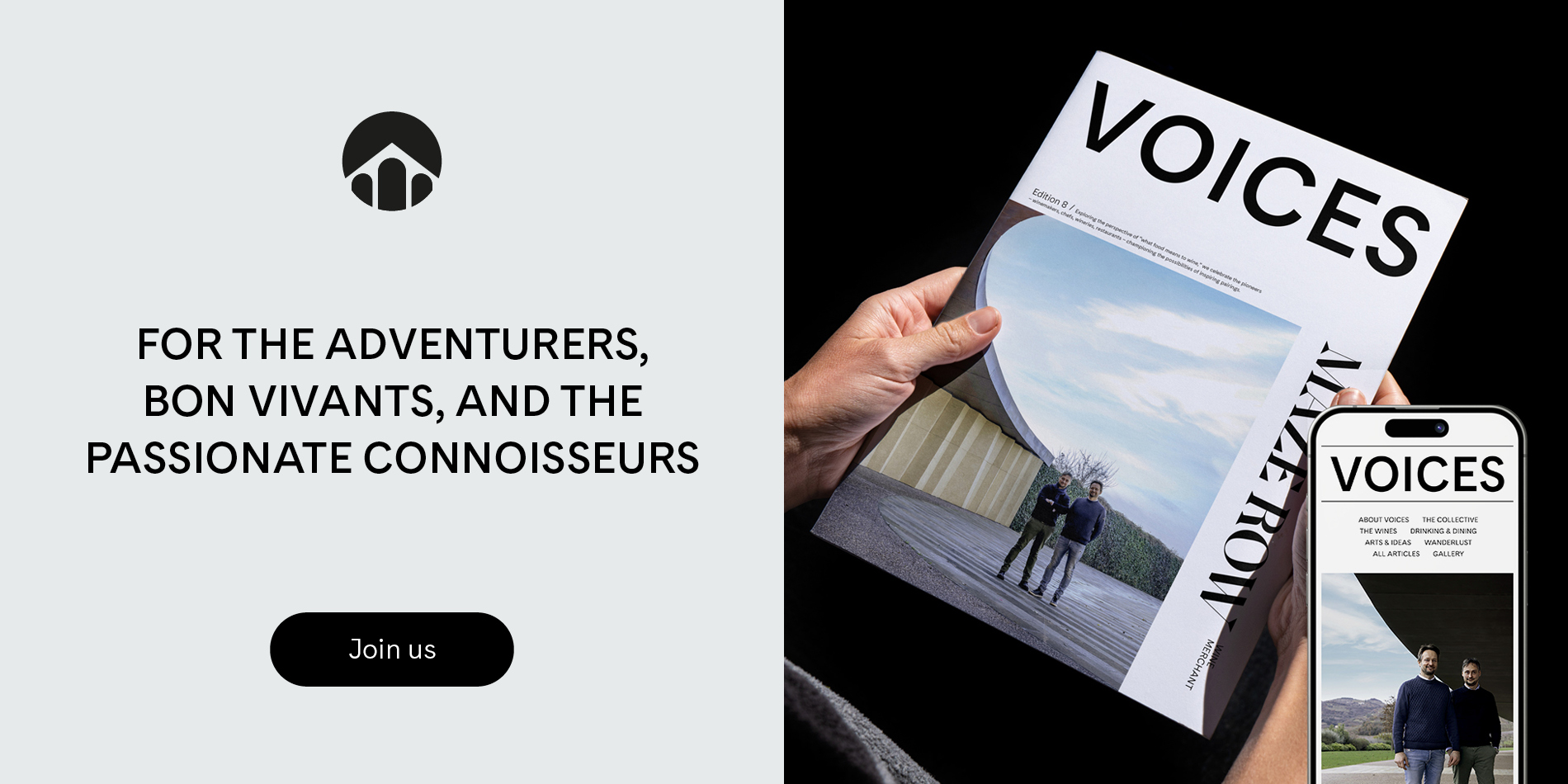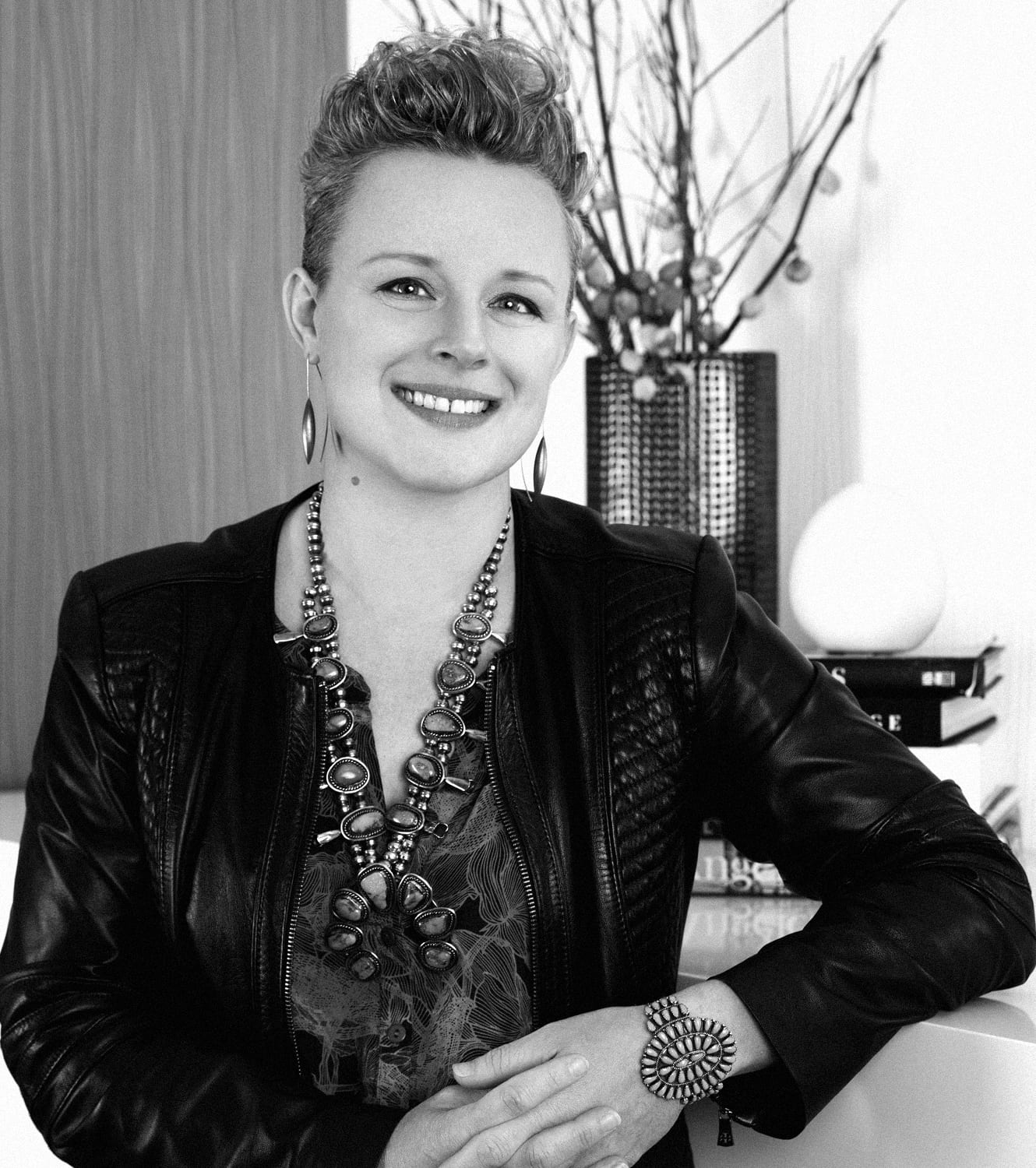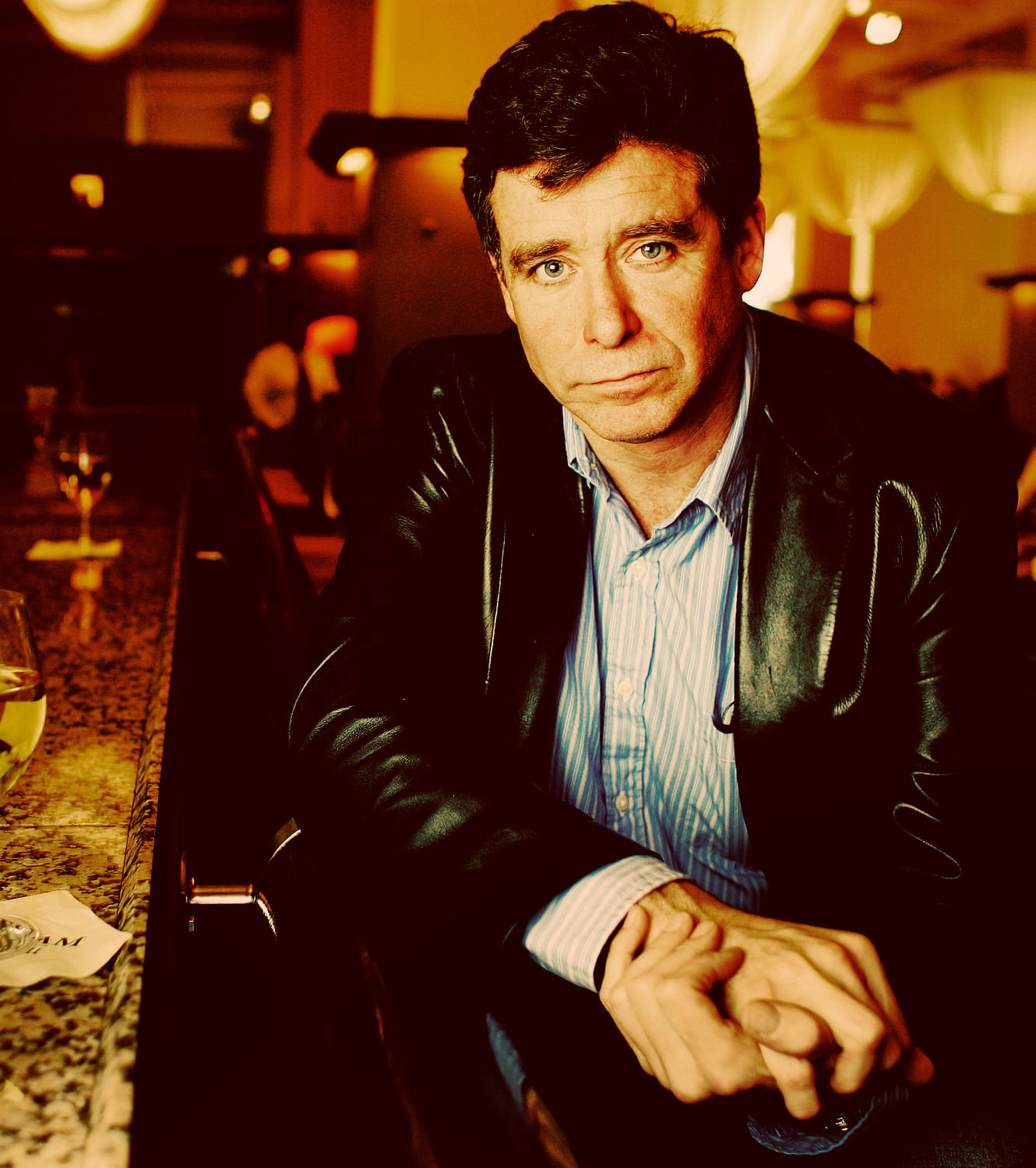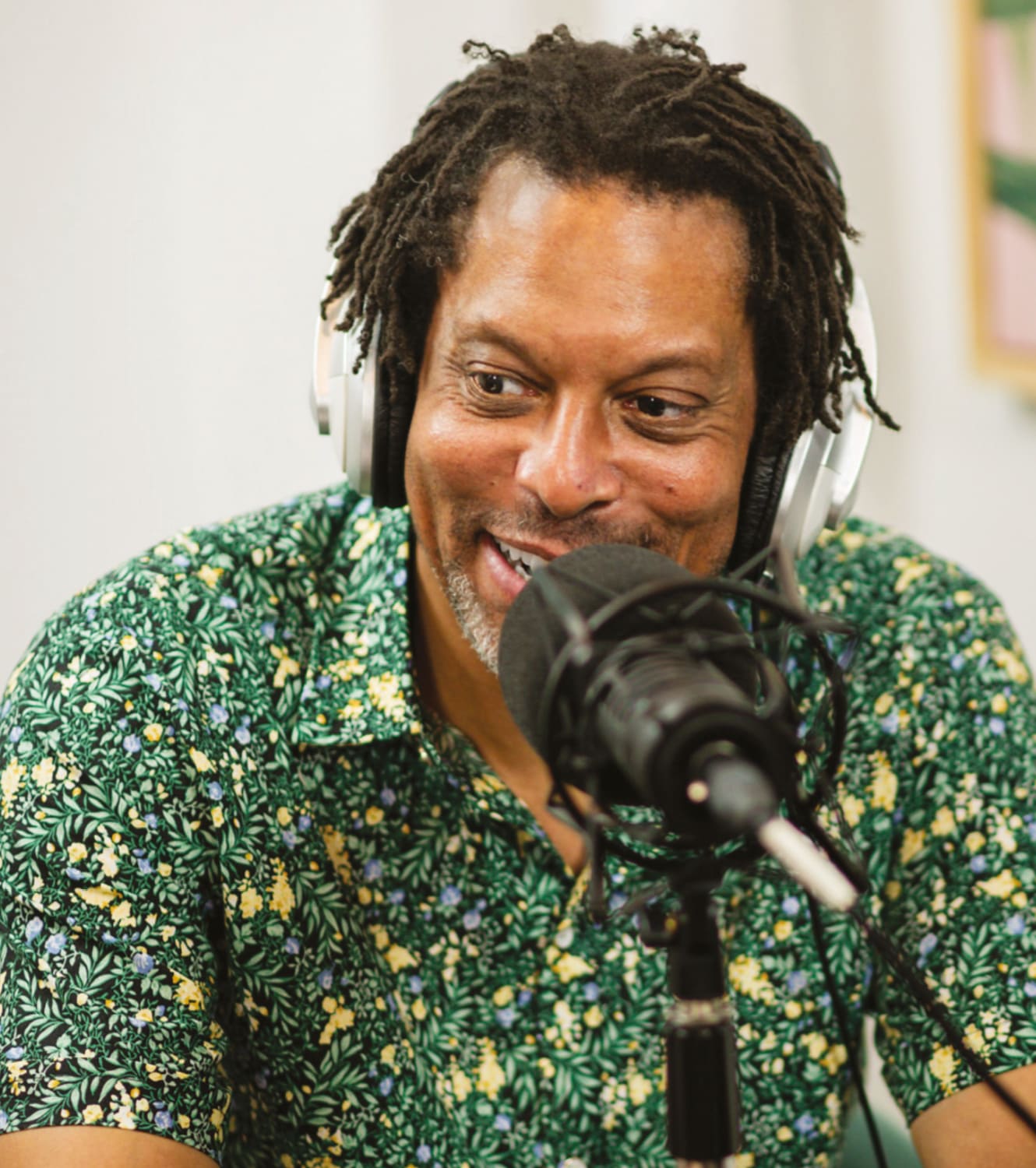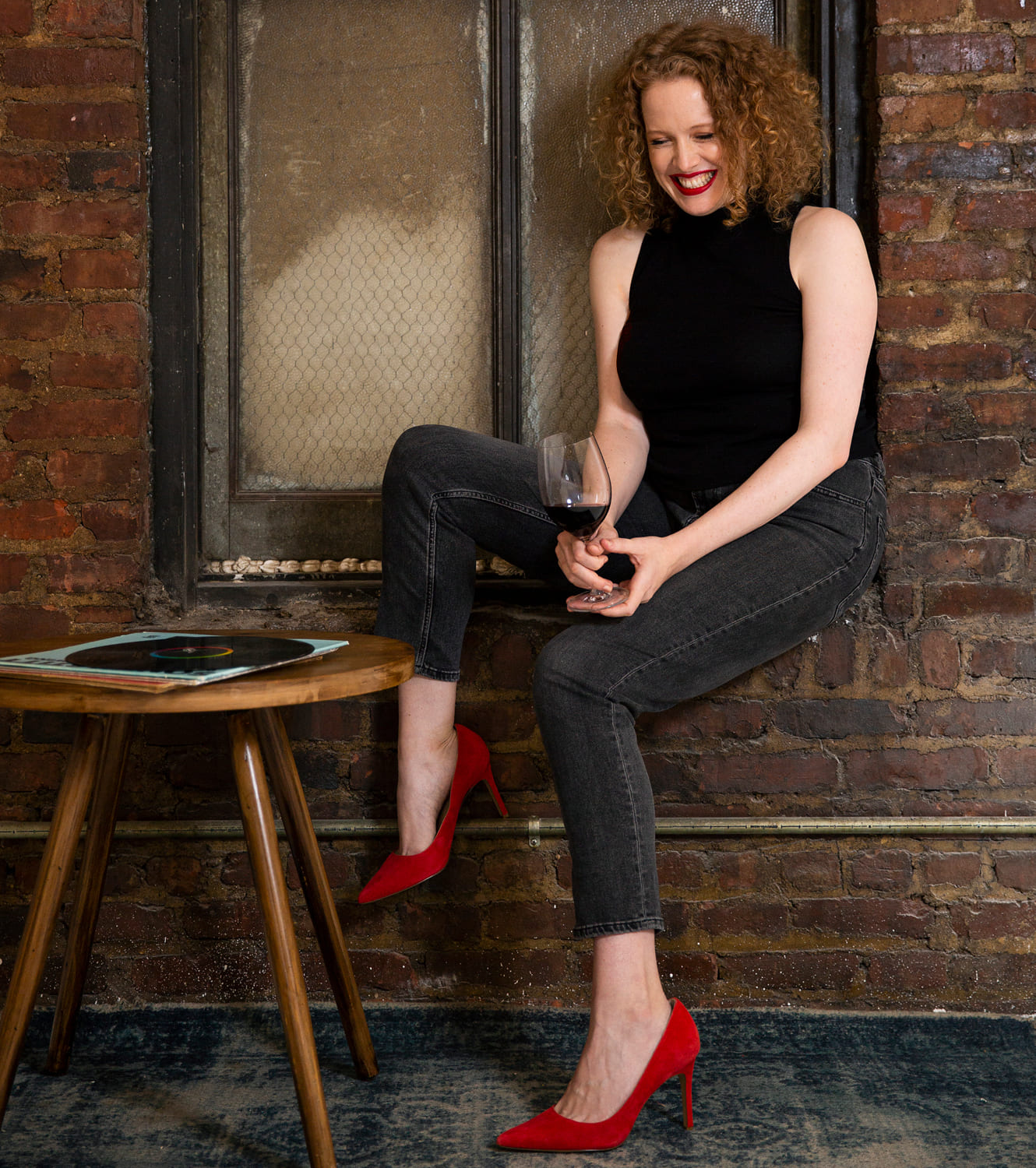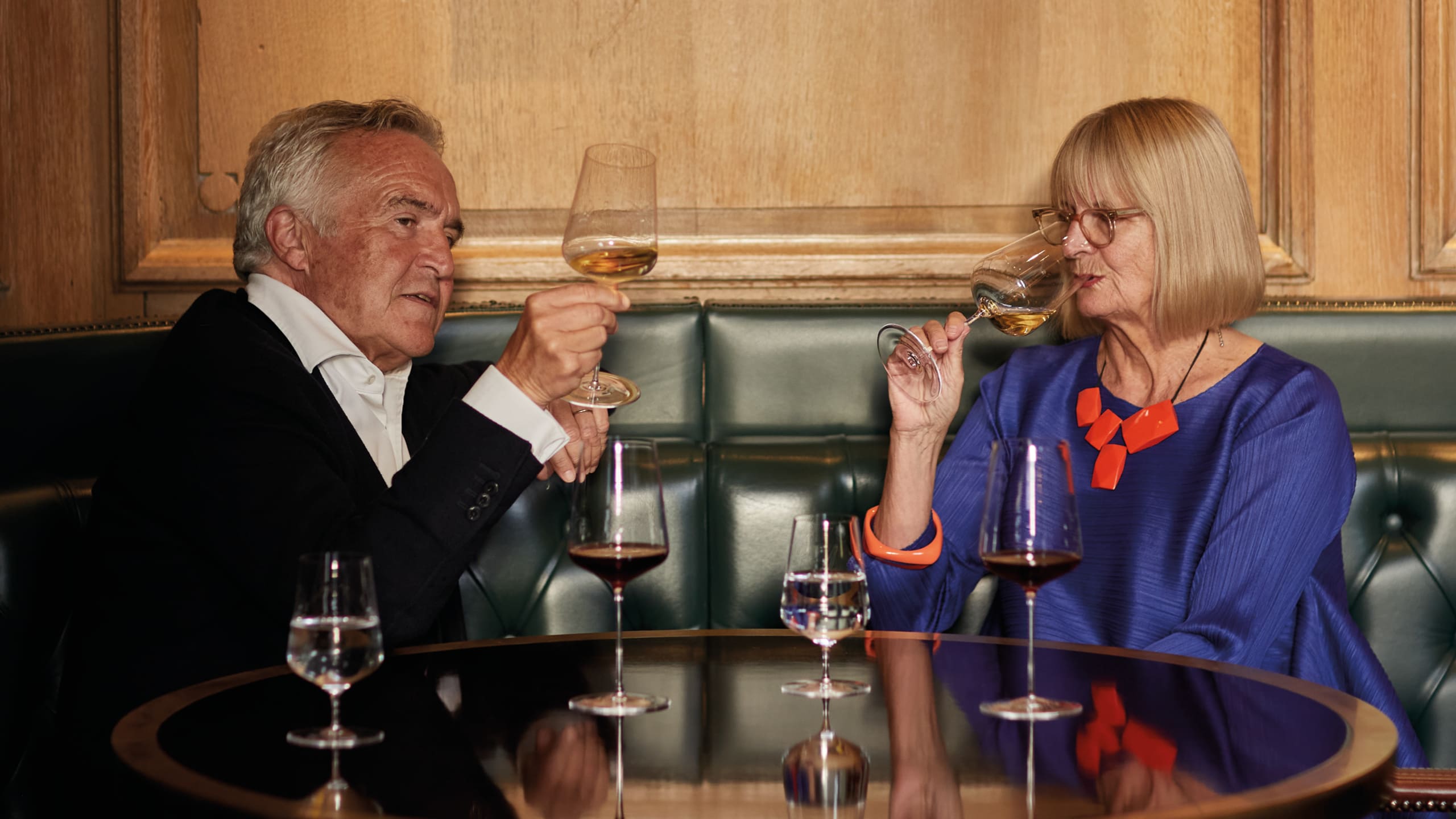
A QUESTION OF TASTE
How does the mystery of taste apply to wine? Stephen Bayley, an outspoken commentator on modern culture, art and design who has made it his life’s mission to unravel the riddle of taste, heads to 67 Pall Mall London to ask the queen critic of wine, Jancis Robinson
I was staring out of the window, thinking about Proust and neuro-aesthetics when Jancis Robinson walked in.
Jancis is one of the most respected wine authorities in the world. Self-taught, too. If it does not sound inelegant to say so, her nose is unrivaled. Her palate as well. And her technical mastery of wine is, by consensus, unmatched.
Marcel Proust, with no column in The Financial Times newspaper, has fewer readers, but nonetheless wrote the best ever account of taste and memory. What he called “l’édifice du souvenir,” that moment when a madeleine dipped in tisane began an avalanche of recollections inspired by what it did in his mouth.
Meanwhile, neuro-aesthetics is that emergent discipline whose fundamental proposition is that our brains are hard-wired to appreciate some things more than others. Our preferences, neuro-aestheticians argue, are not based on intellect, culture, desire and acquired learning, but inalterably built into the structure of our brains. Beauty is not in the eye of the beholder, it’s in the amygdala. It seemed a good moment to ask the author of The Oxford Companion to Wine some questions about taste.
We settled into our positions on the banquette. When I said that any disinterested study of the history of visual arts showed that taste changes from one period to the next, often hilariously, Jancis agreed the same applies to wine. There are no absolutes. “Wine evolves in the same way as fashion.”
This is a tricky proposition since no-one really understands how fashion evolves, only that it changes. “In the 1990s we liked big, oaky, dark, alcoholic fruit bombs. Now we prefer lighter and cleaner and less alcoholic wines,” Jancis explained. “There is no right and wrong about wine.” And there’s no right or wrong about skin-tight jeans versus flares. Maybe the neuro-aestheticians are wrong.
A sommelier came to arrange glasses in front of us, different shapes for the various different wines we were about to taste (or, in my case, drink). Jancis did a small eye roll. “You actually only need one type of glass,” she said.
This is a personal conviction, but also, she said, a reflection of a zeitgeist – her word – that prefers simplicity to elaboration. Such is her commitment to simplification, she has had contemporary product designer Richard Brendon design a standard glass for her.
Swirling a luscious Pieropan Soave around an inferior glass, I asked if the “legs” were an indicator. I’d always believed that the Marangoni effect, those viscous dribbles, was something to look out for. And it seems I was wrong: “You can disregard legs,” said Jancis. “Length is the indicator of quality.”
“Length,” in wine terms, being the lingering taste: Proust’s “souvenir,” a memory that lasts.
I asked now about the notorious terroir, and how wine reveals stories about places, taking you on an aesthetic adventure without leaving your banquette or bar stool. My slight reluctance to enjoy Welsh wine, I said, even as a proud Welshman, is because I prefer being prompted about the Rhône than Ebbw Vale, but she did not concur while failing actually to endorse the emerging viticulture of Wales, saying instead: “I am certainly excited about English wine.” Recently, she has become interested in Swiss wines, too.
“Wine very rarely tastes of grapes, except Muscat!”
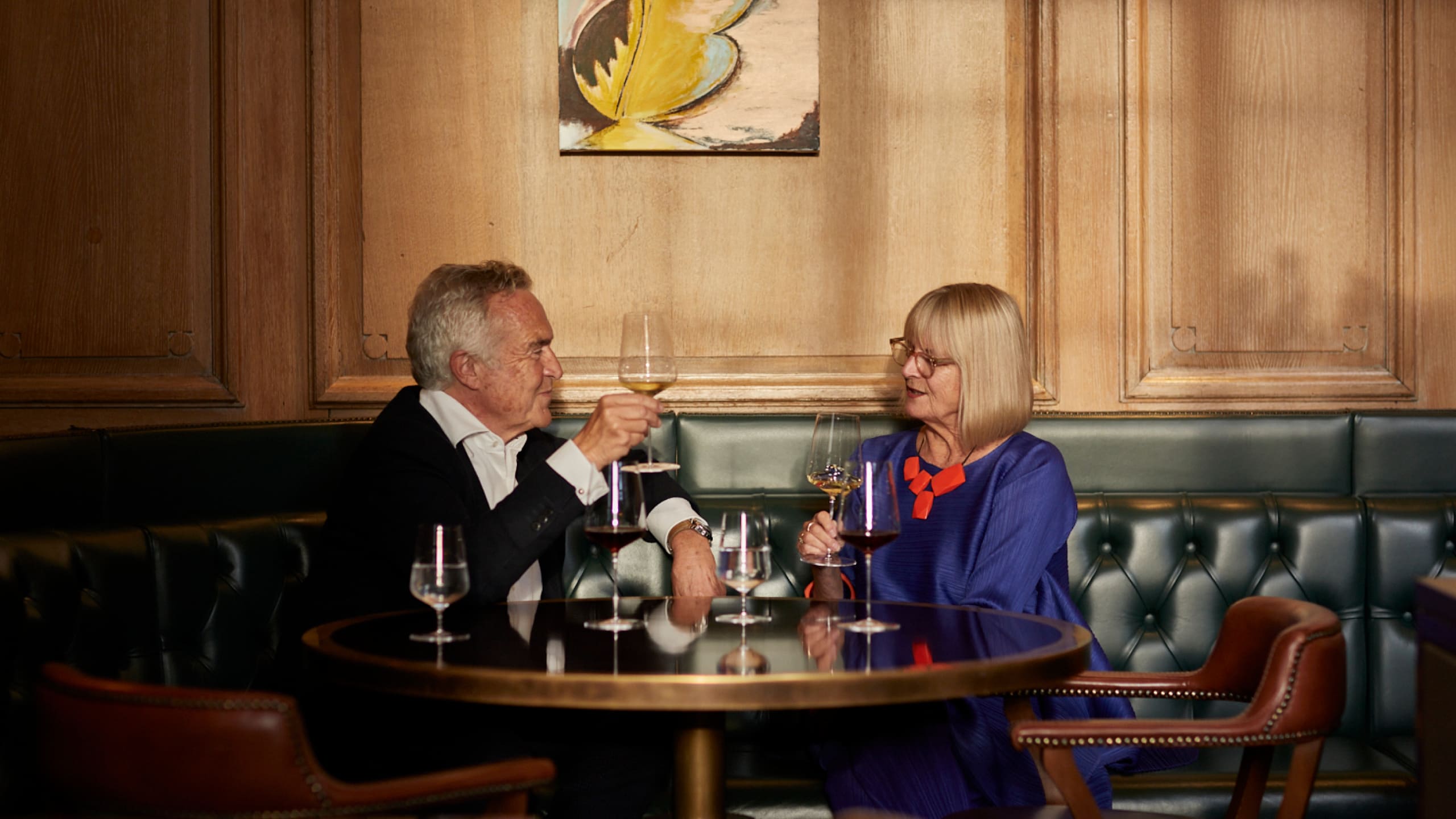
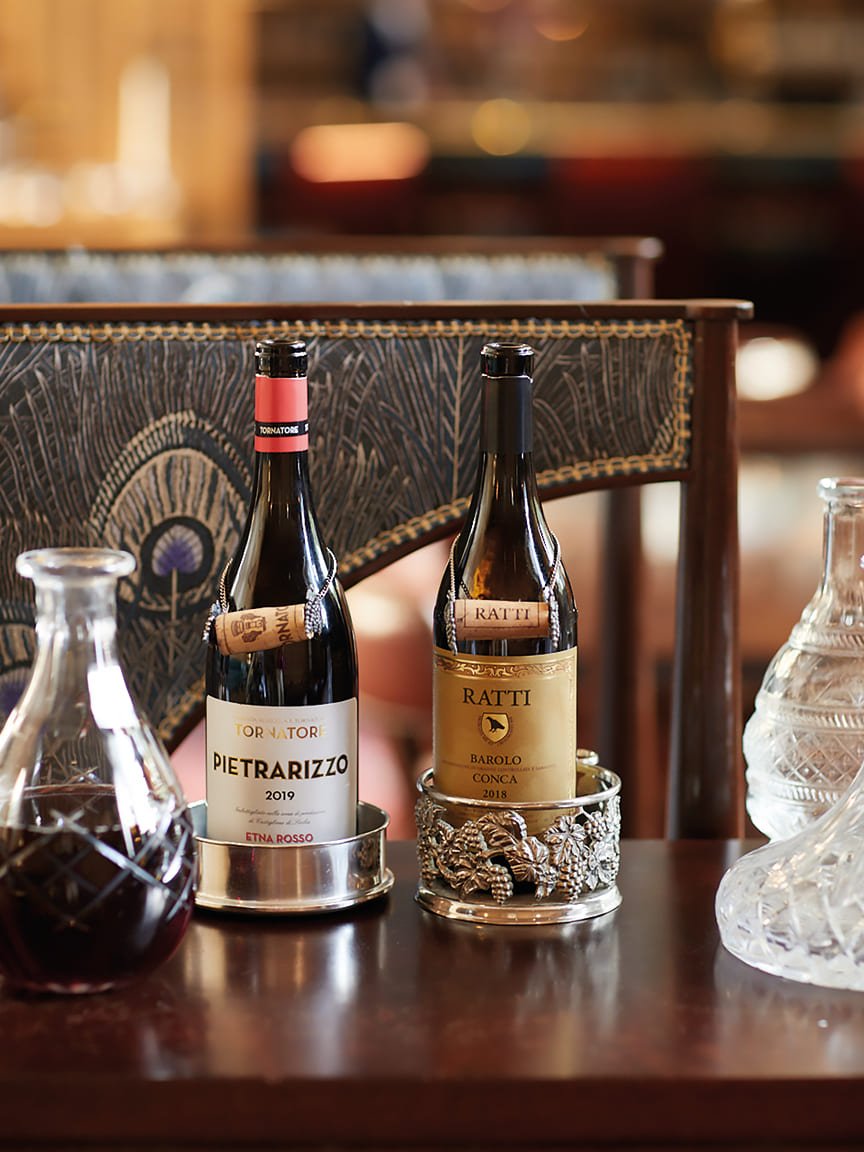
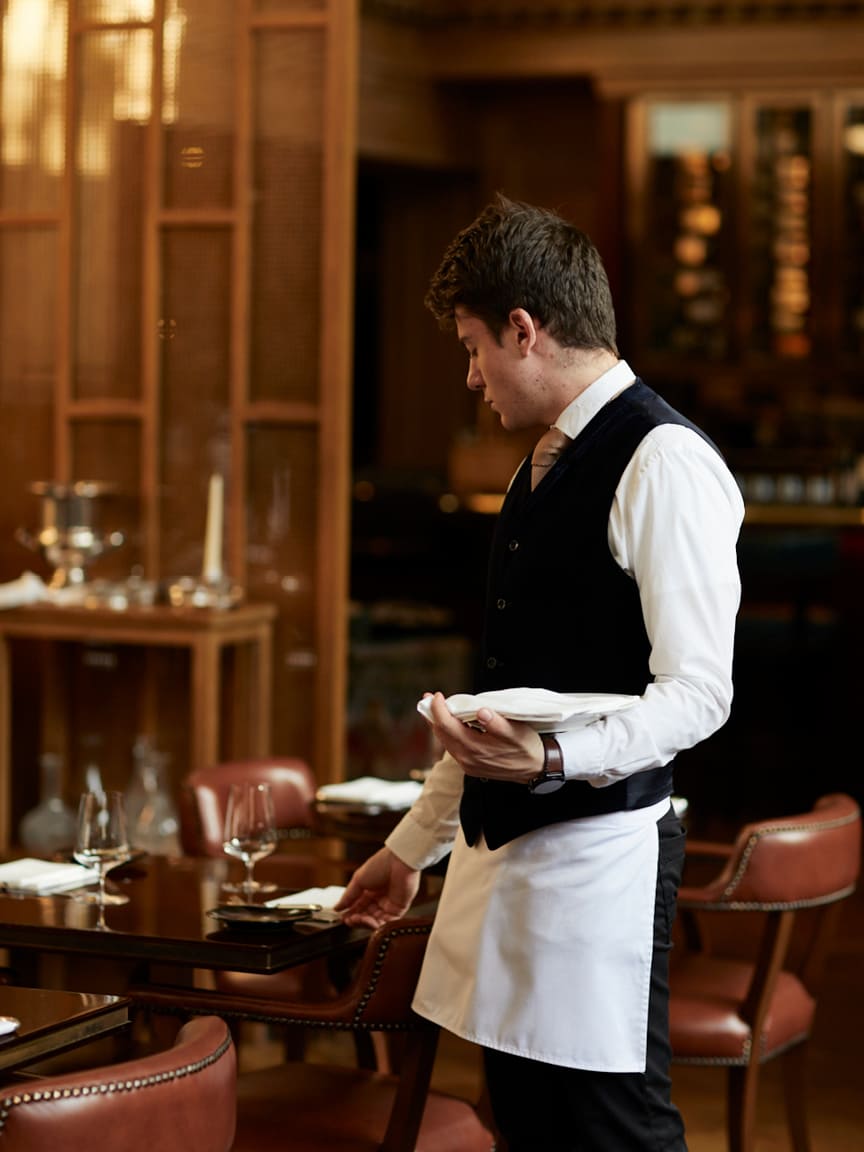
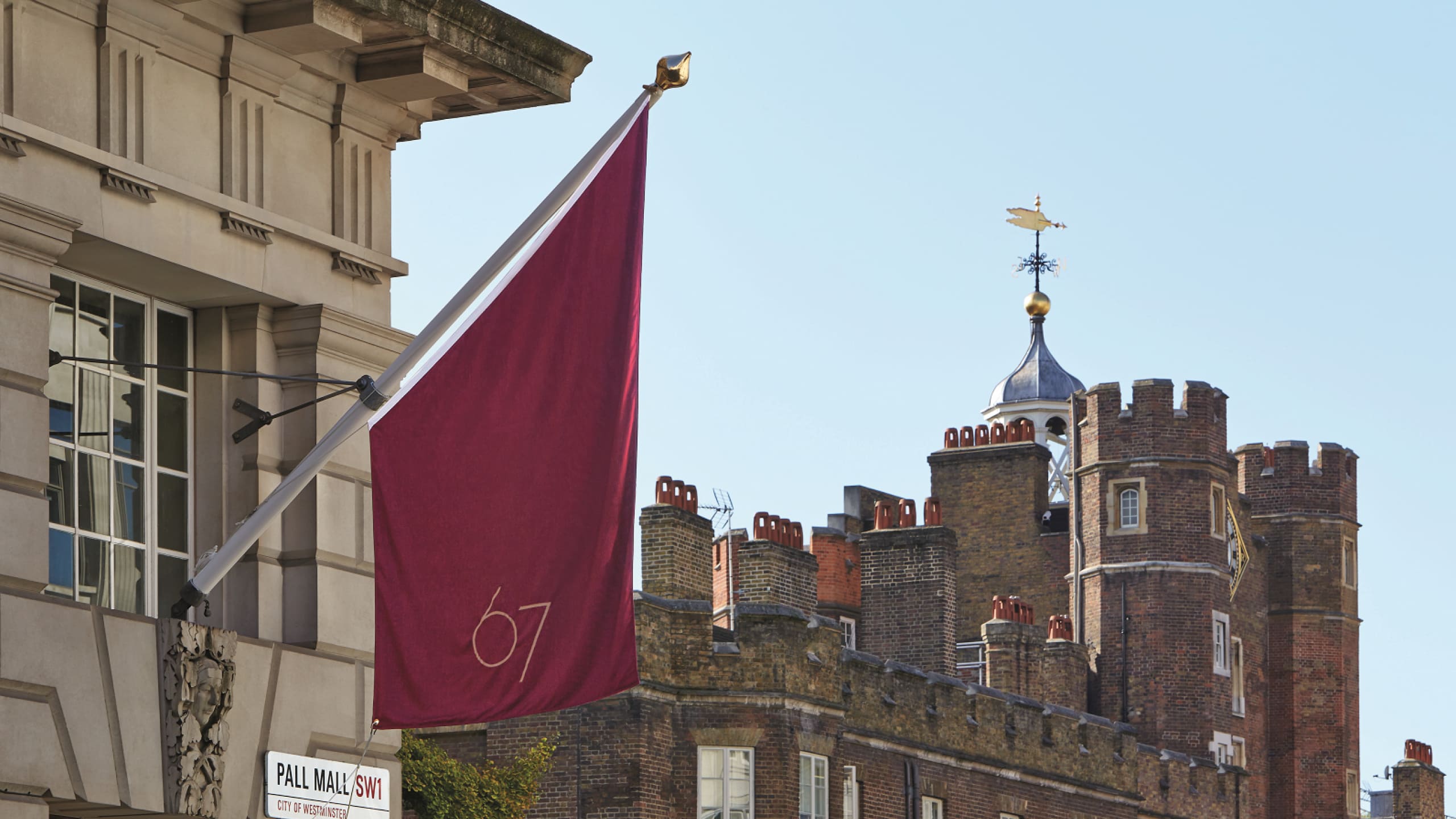
Stephen Bayley and Jancis Robinson at 67 Pall Mall, London with a selection of Maze Row wines
Now, even as we were drinking Italian wines, I wanted to quiz her about the absurdity of Bordeaux, whose business proposition could not exist in any other area but the feudal complexities of the wine trade. I mean: “I will sell you an expensive wine right now which you might be able to drink with pleasure in 30 years. But, then again, perhaps not.”
She agreed. “I have been railing against en primeur for decades. Bordeaux is pulling the wool over our eyes. They don’t need the money (up-front). Just compare it to Rioja. The top makers only release their wines when they are actually ready to drink.”
And, I wanted to know, the en primeur scam apart, what about that obfuscatory stuff tasters say about Bordeaux. Doesn’t “complex” just mean difficult? Jancis replied: “No. Complex means nuanced.”
There is no special discipline for training tongue and nose, just a lot of practice. I mentioned the great Victor Hazan’s simple and perfect tasting rules. Sniff the primary aromas of the wine sitting still in its glass. Give it a swirl and sniff the secondaries. Look at it, and do you see brightness or dullness? Taste it. Do you find it long or short? And do not forget to note whether it is red or white, or, nowadays, orange. That’s all you need to know. She did not demur.
But I wanted to understand why tasters always use an abecedarium of associations: apricot, cherry, blackcurrant, tobacco, pipi de chat, lychees, biscuit, cedar, farmyard, pear drops, petrol, vanilla. Unforgettably, she told me: “Wine very rarely tastes of grapes, except Muscat!”
I stared into what was now my new glass of Ratti Barolo and remembered a visit to Haut-Brion where one taster sniffed and said, “I think I am getting a little Brazilian woman,” which has become my all-time favorite taste association. Then there was Robert Louis Stevenson who described a wine “as red as a November sunset and as odorous as a violet in April.” Or John Armit saying a good red Burgundy should smell of manure, although he used a shorter word. Jancis was too discreet to follow this mucky lead.
As a coup against oenological obfuscation, I brought the critic Walter Benjamin into the conversation. Benjamin believed if you can copy a work of art perfectly, which nowadays you can, why bother with an original? Is it just the snobbery of direct association with a maker, say Leonardo? If you like the taste of, say, Château Palmer 1970, then someone in a lab can imitate it for you with a so-called “Frankenwein,” named for the composite monster, just as delicious and much less expensive. Jancis was not so sure. “No-one,” she said firmly, “has done ‘Frankenweins’ properly.”
But maybe one day they will. Montaigne believed if you take pleasure in drinking good wine, you are bound to be disappointed when you have to drink bad. “To be a good drinker, you must not have too tender a palate,” the philosopher in his Gascony tower said. This inevitably led to the question about catering methodology: does she start a dinner with wine of a certain level and then work up to a climactic resolution with the very best? “It depends how boozy your friends are,” she replied.
Translated, if you have friends who enjoy wine, start them off on a little of the good stuff and let them get greedy later with volumes of vin ordinaire. So now I know that if I visit Jancis and my first glass is a 1945 Latour, I have been categorized as a boozy hog.
The mysteries of taste reveal themselves slowly. They are arbitrary, but pedantic. They involve prediction and surprise, delight and disappointment. Knowledge has its uses, but so too does innocence.
Tasting, I think, is not a pseudo-science. It is not a science at all. Like all the best things in life, it’s irrational. Like love. I winked at my Barolo and carried on.
Jancis Robinson and Stephen Bayley tasted Pieropan Calvarino Classico 2020 and Ratti Conca Barolo 2018.
PHOTOGRAPHY BY Helen Cathcart
We recommend
MAKING WAVES
Through her wine program at Cooper’s Hawk, and as chair of the board of the Court of Master Sommeliers, Americas, Emily Wines is making it her mission to bring diversity, inclusivity and excitement to the world of wine
BRIGHT WINES, BIG CITY
Jordan Mackay meets Jay McInerney for dinner to retrace his journey from literary sensation to leading wine columnist, sampling some fine bottles along the way
CALLING THE TUNES WITH MJ TOWLER
His cutting-edge podcast is a departure from traditional wine industry culture, but MJ Towler is boldly thrusting forward. VOICES sits down with the renegade host for an in-depth perspective
TASTING BORDEAUX WITH DUKE ELLINGTON
A jazz musician, sommelier, and crafting a wine label with Grammy-winning saxophonist Ted Nash, Kyla Marshell meets the artist in Manhattan for a musically enhanced wine experience
